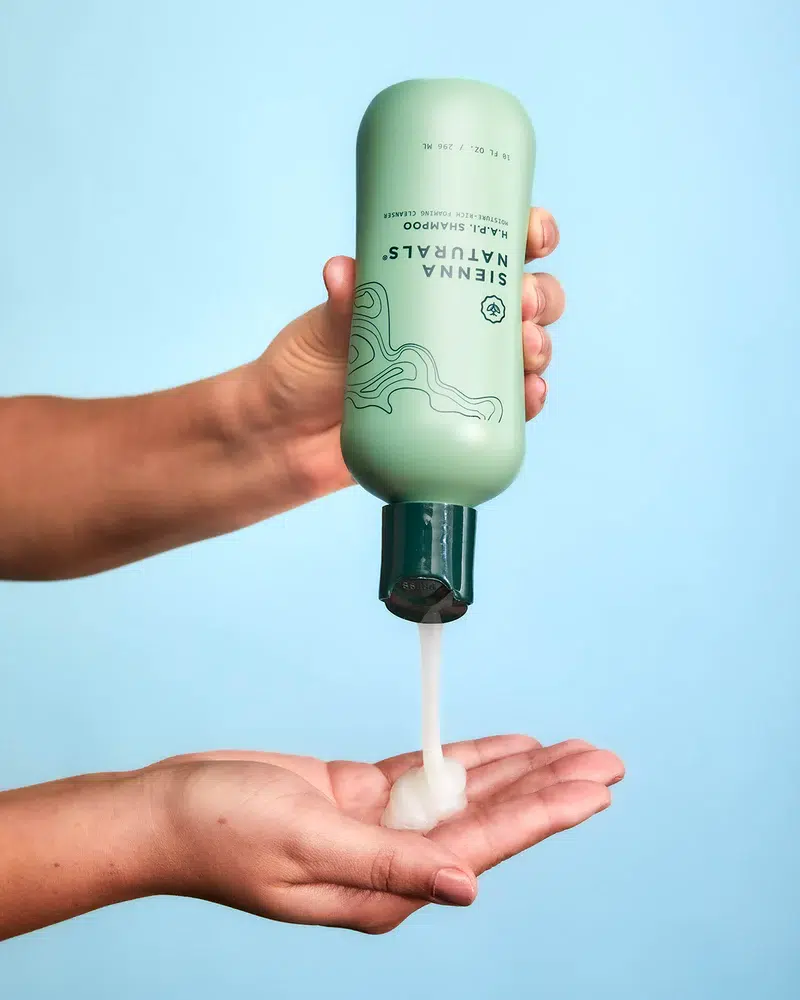
Are Psychedelics Safe For Mental Health?
Picture this: Moms microdosing LSD, trauma victims receiving MDMA therapy, and magic mushrooms helping the terminally ill cope with end-of-life anxiety. No, this isn’t a flashback to the 1960s! This is the current landscape of mental health therapy.
Psychedelics are making their way back into the mainstream with reports of users healing life-long mental health struggles in a few sessions. But with federal regulations and cultural opinion currently in flux, many are wondering: Are psychedelics safe?
“Psychedelics are making their way back into the mainstream with reports of users healing life-long mental health struggles in a few sessions.”
Many studies demonstrate that yes, psychedelics are effective and safe, even with less side effects than other forms of medication. Yet experiences with psychedelics can be challenging or even cause emotional harm, depending on the person and the setting. And because many psychedelics are illegal in most states, there are very few clinicians trained to provide the support that is sometimes so needed.
With psychedelics making headlines for their ability to heal depression, anxiety, and PTSD, you might feel curious about how the treatment would work for you or your loved ones. The important thing in understanding psychedelics is to weigh their risks against potential benefits, paying special attention to how they can be used in safe and effective ways. Read on to explore what it really means to use psychedelics for mental health.
How do psychedelics work?
The psychedelic renaissance is coming at a point in time when depression and anxiety are on the rise. Most of us will know someone who has tried psychiatric medication but is still struggling. Traditional medicines that are taken daily work for some, but they often block access to both joy and sadness and can have serious side effects. For many people, the trade-offs aren’t worth it in the long run.
“The psychedelic renaissance is coming at a point in time when depression and anxiety are on the rise.”
Psychedelics work differently. When used therapeutically, they are taken under the guidance of one or two therapists. The setting is a comfortable room and can include a couch and a playlist, and the session might last multiple hours depending on the medicine. Pre- and post-psychotherapy sessions help prepare for and integrate the experience.
In her 2020 book, “Good Chemistry, The Science of Connection from Soul to Psychedelics,” Dr. Julie Holland writes: “Used in the right setting, [psychedelics] seem to be lighting a path out of chronic loneliness and towards connectedness. Psychedelics can enable not just a connection with the self; they can also offer us a glimpse of the bigger picture, how we are all part of the cosmos, and how we are all interconnected and reliant on one another for our survival.”
During psychedelic journeys, the way we perceive and communicate with ourselves when we are sitting still (our default mode network) is muted, giving us access to an inner world that lies beyond our self-perceptions. By facilitating an inward-focused trance state, psychedelics can connect us to the root cause of our suffering, ideally through a gentle supportive lens.
“By facilitating an inward-focused trance state, psychedelics can connect us to the root cause of our suffering, ideally through a gentle supportive lens.”
Based on the idea that we are loving and compassionate beings at our core, psychedelic usage is thought to facilitate bringing that deep wisdom to other parts of ourselves — especially to those parts that feel wounded by painful life events or stuck in areas where we could grow. With our internal chatter turned down, psychedelics can provide access to this guidance and to deeper states of consciousness.
Users often report a mystical-type experience, feeling a sense of profound unity with all that exists, a deep positive mood, and a looser sense of space and time. Many have trouble finding adequate words to express what happened — and when their journey is over, the experience leads to new ways of seeing old issues and positive changes. The after-effects can linger for weeks, months, or years.
What psychedelics are used for mental health?
Although there are many psychedelics, the ones closest to being legally available in the US are ketamine, psilocybin, and MDMA. There are two paths to legalization: Getting approval from the FDA for nationwide access or via each state revising their legal frameworks to include decriminalization for therapeutic use.
In Indigenous culture, psychedelics have been used for centuries by healers known as shamans, many of whom apprenticed for more than fifteen years to achieve mastery before using them to treat afflictions of the body and mind. Even though the same psychedelic plant medicine might be used for multiple conditions in other cultures, the West takes a different approach. This entails focusing on one medicine and studying its effects on only one disorder at a time.
For example, MDMA (also known as the street drug Molly or ecstasy) was studied in clinical trials for PTSD because of its high prevalence among veterans who lacked effective medication to treat their trauma. After many years of robust clinical trial results including one where 71.1% of participants no longer met the criteria for PTSD, MDMA is currently under review by the FDA for the treatment of PTSD.
“MDMA (also known as the street drug Molly or ecstasy) was studied in clinical trials for PTSD because of its high prevalence among veterans who lacked effective medication to treat their trauma.”
But the road to medicalization is still long. A recent independent advisory panel gave a non-binding recommendation that MDMA’s benefits do not outweigh its risks due to challenges with the design of the two studies presented, cardiovascular risks associated with use, and its potential for abuse. Understandably, the advisory board doesn’t want to rush the introduction of MDMA-assisted psychotherapy at the expense of safety. And yet, mental illness rates are increasing and we are in desperate need of new treatments. The FDA will make a final decision in August and, if they do not approve MDMA, veterans anticipating access will likely travel to states that have decriminalized or legalized some psychedelics, seeking them through the psychedelic “underground,” or travel abroad where they are legal.
Ketamine, a type of anesthesia, is the only legal psychedelic medicine nationally available in the United States (though its off-label use for mental health is not covered by many insurance companies). And psilocybin, a hallucinogenic substance in certain types of mushrooms, is legal in Oregon and Colorado (with restrictions). It is being studied in clinical trials for future FDA approval with transformative outcomes reported.
Those who found relief for various ailments using these drugs have more than just success stories; they often consider the drug treatments life-saving. One such patient is Conrad McIntosh, a college student who’d spent years struggling with anxiety, depression, and undiagnosed autism. His story is compelling: At 16 he was kicked out of his high school band by his drummer weeks before the pandemic. In that one phone call, he lost his creative outlet and three best friends, and he spiraled into a deep depression. After trying many medications unsuccessfully since the age of 10, he underwent ketamine therapy at the age of 21. Ketamine increases neuroplasticity, our ability to see old problems in new ways, by forming new neural pathways in our brain. He says his treatment restructured his thinking in ways that had never been done before by any medication or any type of therapy.
“Ketamine increases neuroplasticity, our ability to see old problems in new ways, by forming new neural pathways in our brain.”
“I remember coming down from the effects of it and I looked around the room and I felt a certain emptiness. When you are depressed, you have this voice that’s always in your head and it’s pretty much controlling your feelings every moment of the day. And I think that emptiness was what was left from the clearing of that voice out of my head,” he explained.
A promising new treatment for depression, anxiety, and PTSD, ketamine is also a recreational club drug known as Special K and can be addictive and dangerous if abused. But used under a clinician’s supervision, it can provide rapid relief from mental suffering which gives time and space to engage in healthier habits. With any experiential treatment, it’s important to assess risk. In Conrad’s case, the risks of treatment-resistant depression outweighed the risk of addiction — especially when coupled with therapeutic supervision.
What about “bad trips”?
Although psychedelics pose very little threat to physical safety, they can cause psychological distress and are not recommended for anyone with a history of psychosis. Everyone should discuss using them with an MD beforehand. Challenging experiences can cause lingering anxiety, feelings of letdown after a powerful positive journey, a feeling of being disconnected from community, and a perceived lack of support. However, in one study, 84% reported benefitting from a difficult trip.
“Challenging experiences can cause lingering anxiety, feelings of letdown after a powerful positive journey, a feeling of being disconnected from community, and a perceived lack of support.”
One therapist reported a client who came in with complaints of depersonalization (feeling of dissociation or connection from oneself, one’s surroundings, or both) after going on vacation in South America and trying Ayahuasca, a tea-like brew that has psychoactive qualities, because she thought it would be “like doing yoga.” She had never tried psychedelics and wasn’t prepared to have a mystical experience where she felt she was shown “that multiple universes are happening at once.” This made her question reality and she struggled with these symptoms for many months.
With preparation and guidance, this might have been a positive experience for her or someone else. Bad trips can also happen to experienced users, which is why it’s important to never use these medicines alone and to seek support from trained psychedelic-friendly therapists.
The therapist guiding your experience can help alleviate challenging moments, which is why it’s important to have one who is trained and confident in the specific medicine being used. Psychedelics are powerful medicines that can connect us to unknown spiritual realms. The answers we seek don’t always come linearly, so integration sessions are meaningful to help unpack, elongate the positive aspects of the journey, and make sense of what was seen.
How can psychedelics be used safely?
Psychedelics are safest when users are prepared and understand the risks associated with their use. It’s important to take steps to support yourself before, during, and after a psychedelic experience. Below is a short list of things to consider before trying these medicines.
- Psychedelics are not magic solutions. It’s important to not buy into the media hype which mostly reports positive outcomes. Do research and personally speak to experts before using them.
- Not everyone is called to psychedelic medicine; only proceed when you are ready.
- Start preparation work with a trained psychedelic clinician before engaging in this type of therapy.
- If you are traveling abroad (where more psychedelics are legal) make sure you have mental health support set up for before and after.
- When in an altered state, you are more vulnerable to abuse of all kinds, including sexual. Make sure your therapist or guide is vetted.
- Insist on a medical intake before using any of these medicines as they could have contraindications with prescription medicines or have side effects that might affect your medical conditions.
- It’s important to have support from family or friends, so you don’t feel alone when you want to talk about your experience.
- Psychedelics can offer powerful journeys, but positive life changes are more probable with time spent in integration, the post-therapy sessions to bring the learnings into your day-to-day life. It’s not a single experience that makes the difference, but an ongoing journey.
“For many, pyschedelics are an innovative treatment option that can help address issues that are otherwise very difficult to heal from.”
In the end, as a healing modality, psychedelics are relatively safe physically — and the risk of them causing psychological harm can be decreased (but not eliminated!) with proper preparation and integration after use. For many, psychedelics are an innovative treatment option that can help address issues that are otherwise very difficult to heal from. Finding the support you need from a clinician experienced in supporting the use of psychedelics and from your community can lead to lasting relief from depression, anxiety, and PTSD.
Whatever journey you take, we wish you a healing and peaceful path forward — and we hope that knowing a bit more about psychedelics helps you find your way.
Rebecca Hendrix, LMFT is a Manhattan-based licensed integrative holistic psychotherapist. She specializes in relationship issues, depression, anxiety, grief, and spiritual growth. You can find her on Instagram or learn more on her website.




